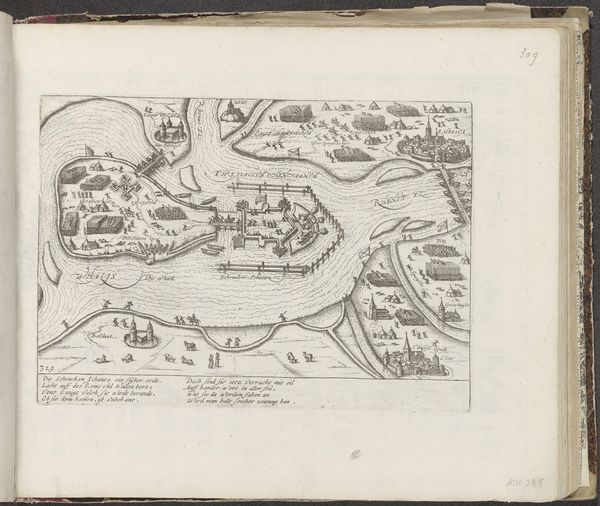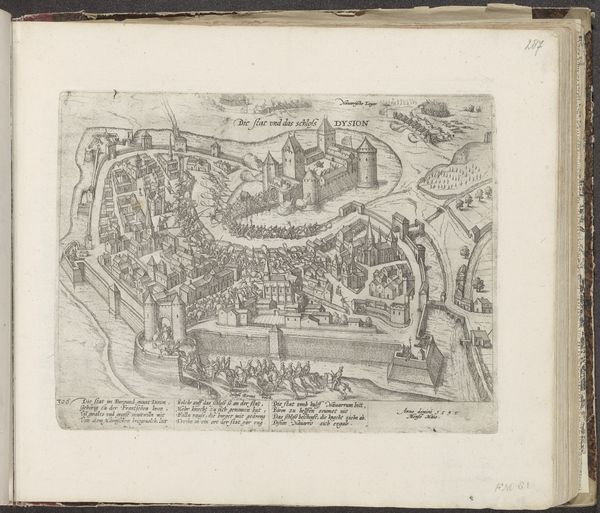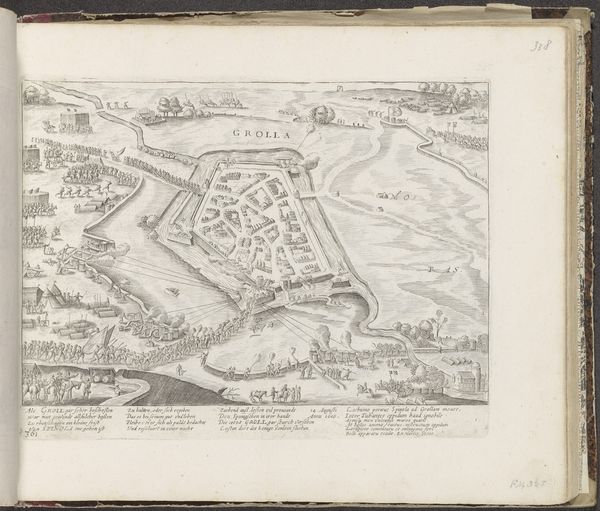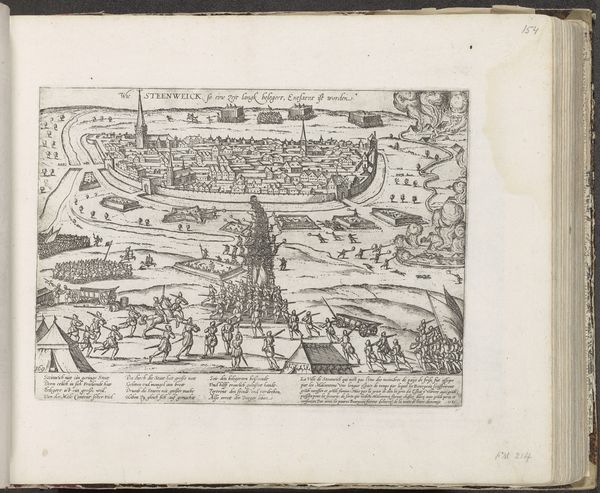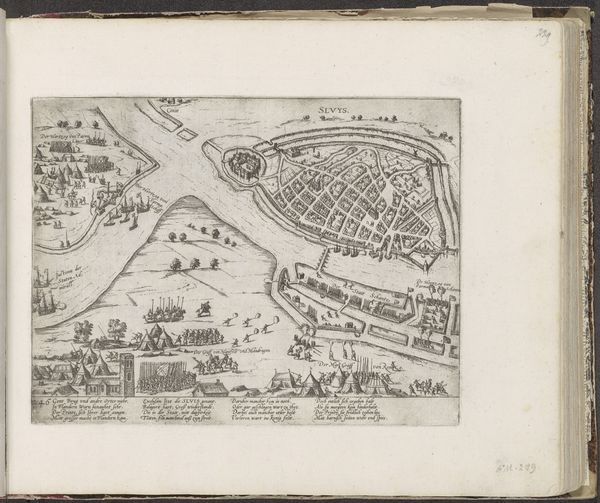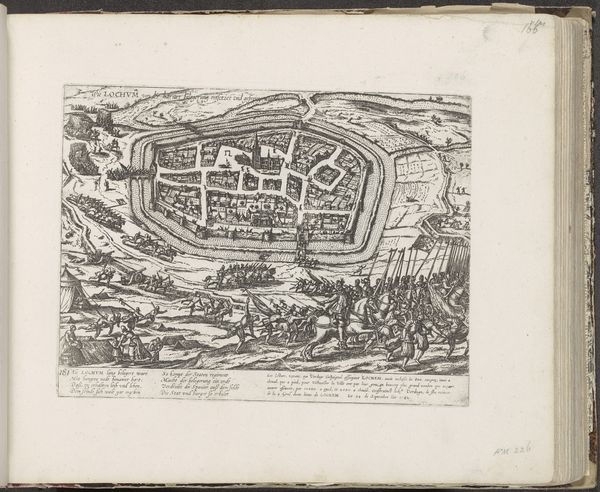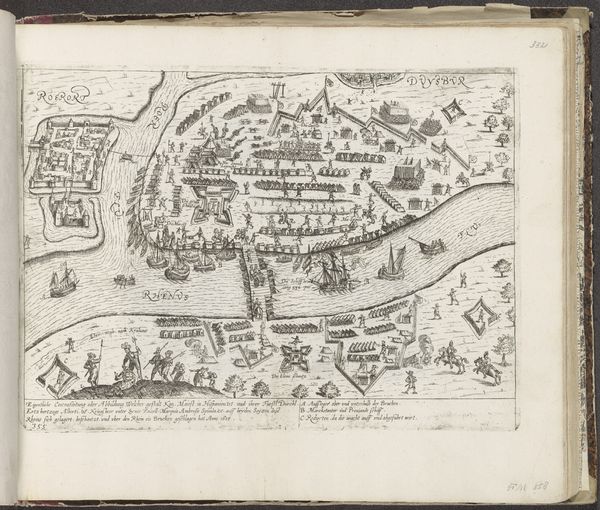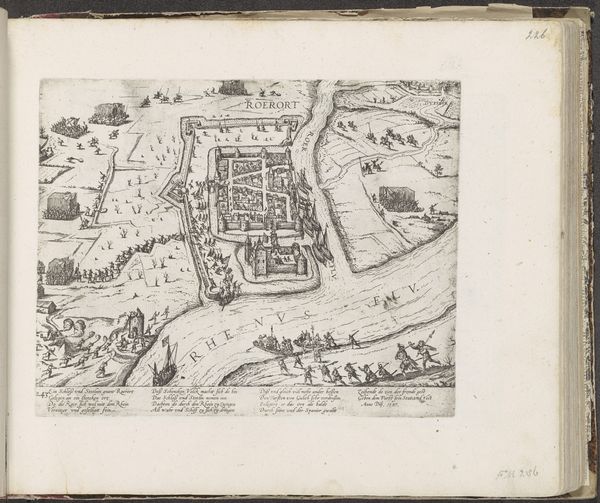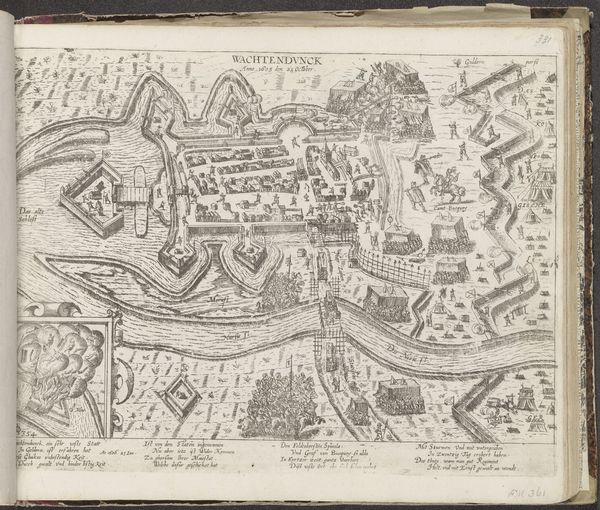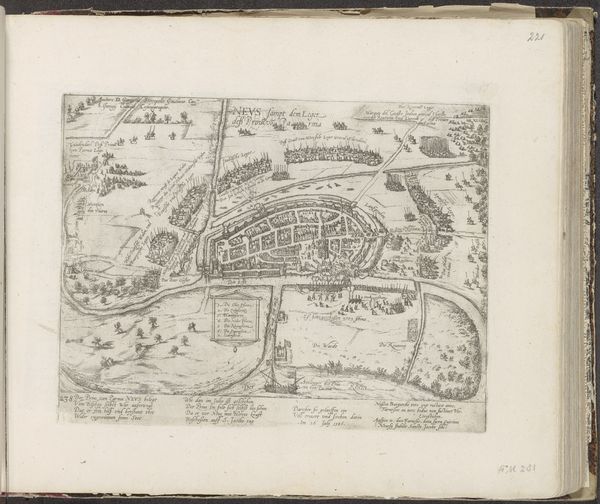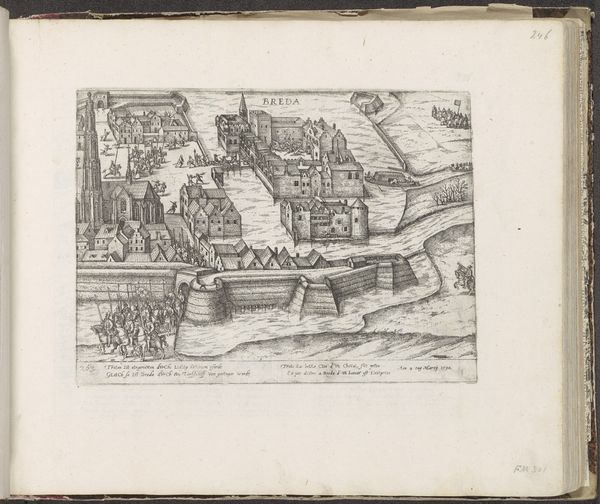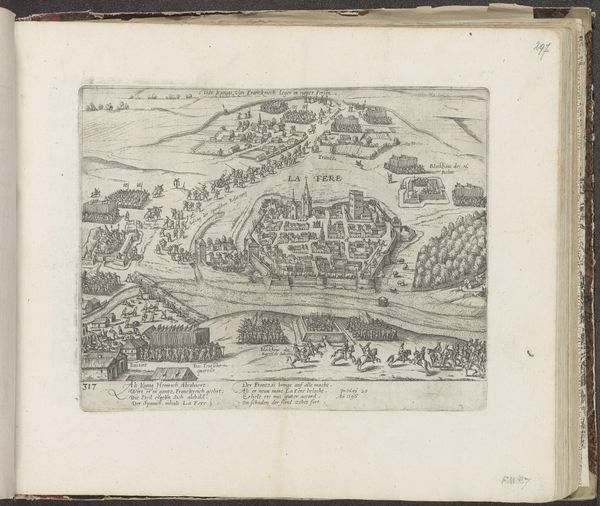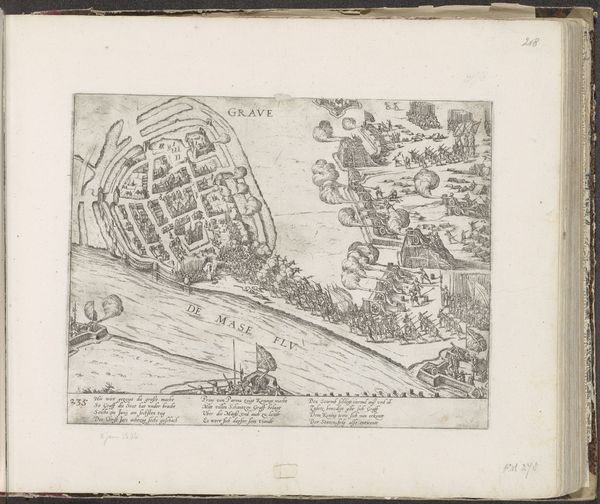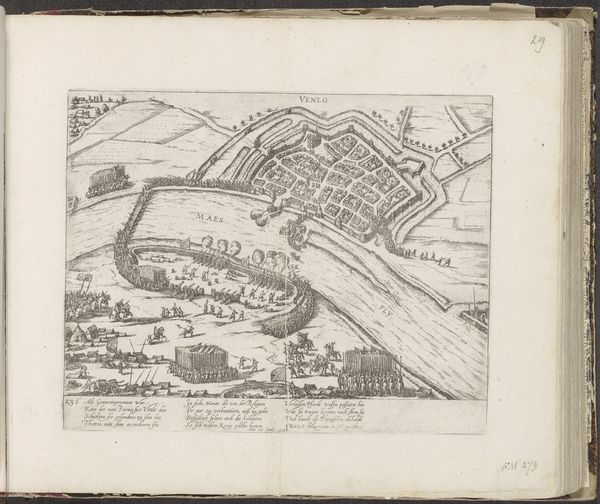
drawing, print, pen, engraving
#
drawing
#
aged paper
#
toned paper
#
baroque
#
pen drawing
# print
#
pen sketch
#
sketch book
#
landscape
#
personal sketchbook
#
pen-ink sketch
#
pen work
#
sketchbook drawing
#
pen
#
cityscape
#
sketchbook art
#
engraving
Dimensions: height 212 mm, width 293 mm
Copyright: Rijks Museum: Open Domain
This print, Wachtendonk Occupied by the Spanish, was made in 1603, likely in Germany, by Frans Hogenberg. He used engraving, a printmaking technique, to create this image. Engraving involves cutting lines into a metal plate, applying ink, and then pressing paper against the plate to transfer the image. This process allowed for the detailed depiction of the town's layout, fortifications, and the surrounding landscape. The fine lines and careful shading give a sense of depth and texture, emphasizing the strategic importance of Wachtendonk. Hogenberg was known for his cityscapes and historical prints, catering to a growing market for visual information in early modern Europe. These prints weren't just art; they were a form of media, illustrating political events and military campaigns for a public eager to stay informed. The labor-intensive nature of engraving meant that each print was a valuable commodity, reflecting the intersection of art, commerce, and information dissemination in Hogenberg's time. It is a great example of how art and craft intertwine with social and economic contexts.
Comments
No comments
Be the first to comment and join the conversation on the ultimate creative platform.
